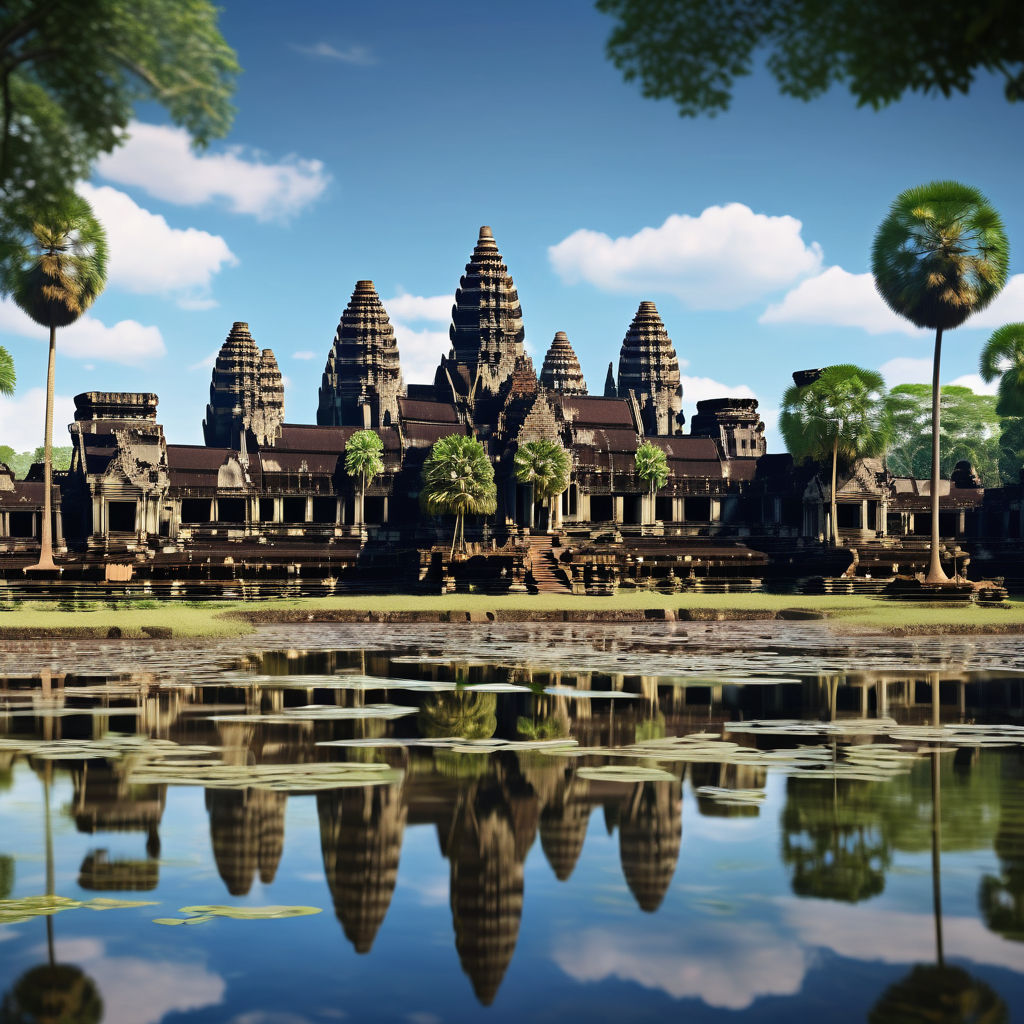Discover Cambodia: A Land of Rich History and Vibrant Culture
Explore Cambodia's Unique Blend of Ancient Traditions and Modern Influences

Introduction to Cambodia
Cambodia, located in Southeast Asia, is bordered by Thailand to the west and northwest, Laos to the north, Vietnam to the east, and the Gulf of Thailand to the southwest. The country is known for its lush landscapes, rich history, and vibrant culture. Phnom Penh, the capital city, is the political, economic, and cultural hub of Cambodia. Other major cities include Siem Reap, known for the nearby Angkor Wat temple complex, and Battambang, famous for its colonial architecture and art scene. Cambodia's cultural heritage is a blend of ancient Khmer traditions, Buddhism, and French colonial influences, creating a unique and diverse cultural landscape.
Cross-national and Cross-cultural Understanding
Cambodia has a long history of interacting with various cultures, particularly through trade and migration. The Khmer Empire, which dominated much of Southeast Asia from the 9th to the 15th centuries, was a center of cultural exchange, drawing influences from India, China, and other neighboring regions. This historical background has shaped the Cambodian people's openness and adaptability to other cultures. In contemporary times, Cambodia promotes cross-cultural understanding through various educational programs and international partnerships. Universities in Cambodia often have exchange programs with institutions in other countries, facilitating cultural and academic exchanges. Additionally, organizations such as the Peace Corps and various NGOs work within Cambodia, bringing in volunteers from around the world who engage with local communities and share their cultures. Cultural festivals, such as the Water Festival (Bon Om Touk) and the Angkor Wat International Half Marathon, also attract international participants, fostering cross-cultural interactions and understanding.
Interactions and Social Dynamics
Cambodians are generally known for their warm hospitality and friendliness toward foreigners. Social interactions are often characterized by politeness and respect, with a strong emphasis on maintaining harmony and avoiding conflict. Cambodians typically greet each other with a "sampeah," a gesture involving pressing the palms together in a prayer-like fashion, accompanied by a slight bow. Communication styles in Cambodia tend to be indirect, and people often use non-verbal cues to convey their messages. This can sometimes lead to misunderstandings for foreigners who are accustomed to more direct forms of communication. However, Cambodians are generally patient and understanding, making efforts to bridge any communication gaps. Language plays a crucial role in facilitating interactions. While Khmer is the official language, many Cambodians, especially in urban areas and tourist destinations, speak some English. French is also spoken by older generations and those involved in the tourism industry, reflecting the country's colonial past. Multilingualism in Cambodia enhances communication with foreigners and reflects the country's historical and contemporary cultural exchanges.
Views on Dating and Relationships
Dating and relationships in Cambodia are influenced by traditional values and modern attitudes. In urban areas, young people often date openly, although family approval and involvement remain important. In rural areas, traditional customs and expectations are more prevalent, with arranged marriages still common in some communities. Cambodians generally view relationships with foreigners positively, especially in cities where cross-cultural interactions are more frequent. There is an appreciation for different cultures and a recognition of the personal growth that can come from such relationships. However, traditional expectations regarding respect for elders and family approval can influence attitudes toward dating foreigners.
Marriage and Family
Marrying foreigners in Cambodia is generally accepted, particularly in urban settings. The legal framework supports cross-cultural marriages, although certain bureaucratic procedures must be followed, such as obtaining necessary documentation and adhering to local marriage laws. Socially, cross-cultural marriages are seen as opportunities for cultural exchange and mutual enrichment. Weddings in Cambodia are often elaborate events that blend traditional practices with modern elements. A traditional Khmer wedding might include a series of ceremonies over several days, involving family and community members. Family plays a central role in Cambodian society, and this extends to marriage. Families are typically involved in the matchmaking and wedding process, ensuring that cultural traditions and values are upheld. Marrying a foreigner often requires navigating different cultural expectations and traditions, but it also provides an opportunity for families to expand their cultural horizons.